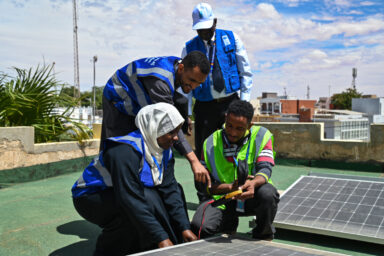Technology Boosts Efforts to Curb Tree Loss in Amazon: Study
PICKS are stories from many sources, selected by our editors or recommended by our readers because they are important, surprising, troubling, enlightening, inspiring, or amusing. They appear on our site and in our daily newsletter. Please send suggested articles, videos, podcasts, etc. to picks@whowhatwhy.org.
Technology Boosts Efforts to Curb Tree Loss in Amazon: Study (Maria)
The author writes, “Technology can help indigenous communities to significantly curb deforestation, according to a new study. Indigenous people living in the Peruvian Amazon who were equipped by conservation groups with satellite data and smartphones were able to reduce tree losses by half in the first year of the project. Reductions were greater in communities facing threats from illegal gold mining, logging and drugs.”
How a Minnesota Man Made a Career Out of Anonymously Amplifying Dark Plots (Dan)
From The Washington Post: “Sean G. Turnbull displays many of the hallmarks of a successful upper-middle-class family man, a former film producer and marketing manager for one of the country’s largest retail corporations who lives in a well-appointed home in this Minneapolis-St. Paul suburb. Former colleagues describe him as smart, affable and family-oriented. But for more than a decade, the 53-year-old has also pursued a less conventional path: anonymously promoting conspiracy theories about dark forces in American politics on websites and social media accounts in a business he runs out of his home. His audience numbers are respectable and his ad base is resilient, according to corporate records and interviews.”
A Houston Man Is Arrested for Alleged Illegal Voting as Texas GOP Seeks Tighter Laws (Dana)
From NPR: “When Hervis Rogers went viral on social media for being the last person in line at Texas Southern University to cast a vote at 1 a.m. on Super Tuesday in March 2020, he was applauded as a tenacious, civic-minded man who worked hard to exercise his right to vote. Now, Rogers is being prosecuted by Texas Attorney General Ken Paxton’s office for allegedly voting illegally. The arrest came just one day before the Texas Legislature convened on Thursday to begin a special session, where a controversial voting bill is on the agenda. Republicans in favor of new voting restrictions point to cases like Rogers’ as proof of an insecure system. However, there was no evidence of widespread voter fraud in the 2020 presidential election.”
Judge Questions Claim the Public Has No Right to Know Who’s Paying for Ariz. Election Audit (Reader Steve)
The author writes, “A judge questioned a Senate attorney’s claim Wednesday that the public has no right to know who is paying for the 2020 election audit. During a hearing, Maricopa County Superior Court Judge Michael Kemp pointed out that Senate President Karen Fann has said the Senate, in hiring an outside firm to conduct the audit, was performing ‘this important constitutional duty.’ ‘Isn’t the public entitled to know who’s paying for this, besides the $150,000 the Senate has already appropriated?’ the judge asked Fann’s attorney, Kory Langhofer.
Russian Hackers Are Trying to Brute-Force Hundreds of Networks (Mili)
The author writes, “The discovery of Russia’s devastating SolarWinds spy campaign put the spotlight on the sophisticated supply chain hijacking techniques of Moscow’s foreign intelligence hackers. But it’s now apparent that, throughout that SolarWinds spying and its fallout, another group of Kremlin hackers has kept up their usual daily grind, using basic but often effective techniques to pry open practically any vulnerable network they could find across the US and the global internet.”
Wildlife, Air Quality at Risk as Great Salt Lake Nears Low (Dan)
The author writes, “The silvery blue waters of the Great Salt Lake sprawl across the Utah desert, having covered an area nearly the size of Delaware for much of history. For years, though, the largest natural lake west of the Mississippi River has been shrinking. And a drought gripping the American West could make this year the worst yet. The receding water is already affecting the nesting spot of pelicans that are among the millions of birds dependent on the lake. Sailboats have been hoisted out of the water to keep them from getting stuck in the mud. More dry lakebed getting exposed could send arsenic-laced dust into the air that millions breathe.”
Can Whale Poo Help Save the Planet? (Mili)
The author writes, “The International Whaling Commission (IWC) was founded to regulate whaling. Today, it also increasingly focuses on the value of live whales for planetary health. A new workshop report confirms the great ecological value of whales to help mitigate climate change, transport nutrients, enhance marine productivity, and promote biodiversity in marine ecosystems. The world’s leading experts gathered for a three-day workshop in April … to compile scientific information about the ecological roles of cetaceans (whales and dolphins).”



